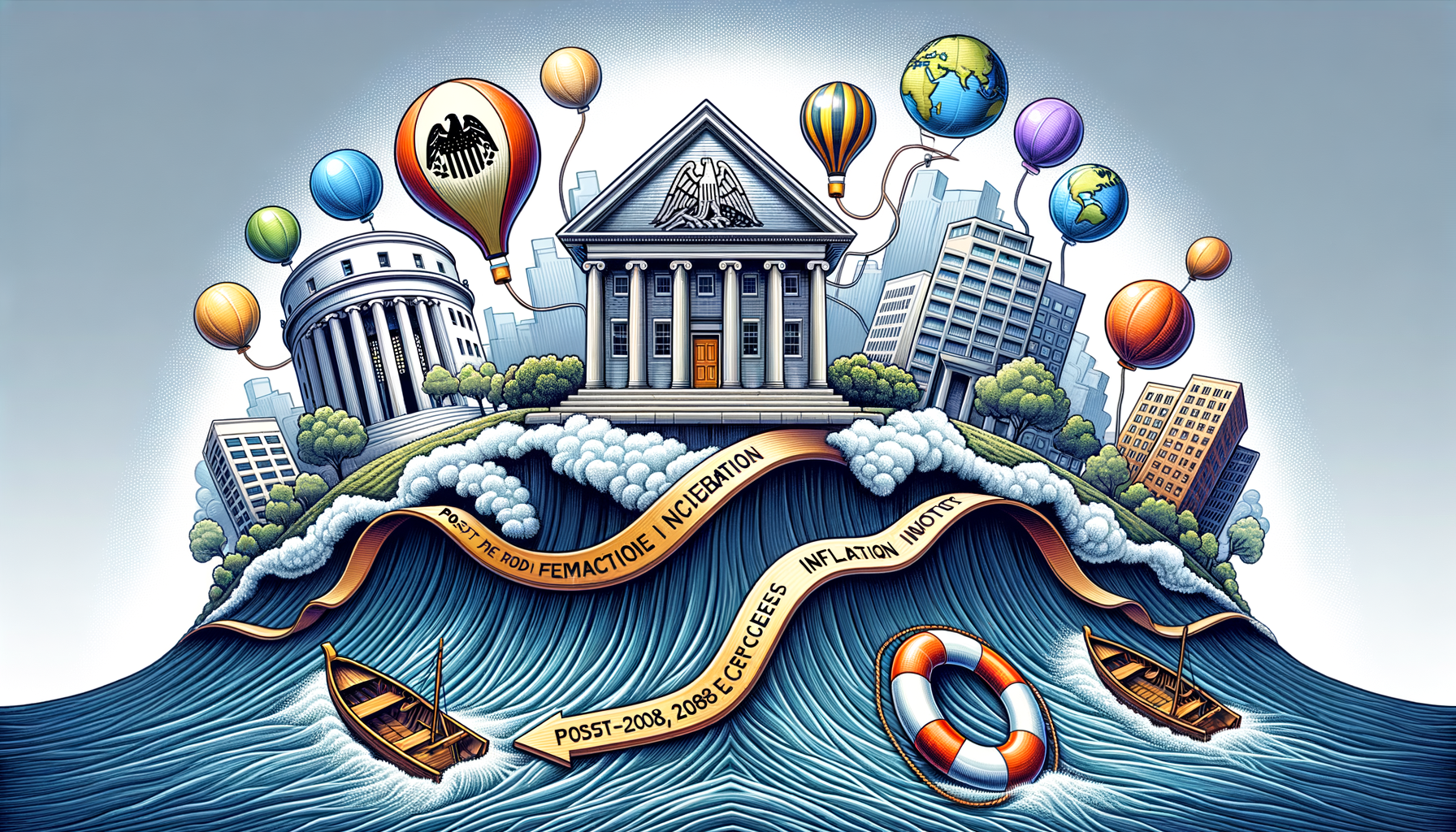“Understanding the Recent Shifts in Mortgage Rates: An Insightful Exploration”
Mortgage rates are a crucial aspect of the housing market, influencing decisions from home buying to refinancing. Understanding how these rates change and what drives these fluctuations can help consumers and investors make better financial decisions. Here’s an overview of recent trends in mortgage rates and the factors that are impacting them.
### Understanding Mortgage Rates
Mortgage rates refer to the interest percentage that lenders charge on a loan used to purchase a property. This rate directly affects the monthly payments that borrowers must make, ultimately influencing a person’s ability to buy a home.
### Historical Perspective
Historically, mortgage rates have experienced significant fluctuations. For instance, back in the 1980s, rates were shockingly high, peaking at over 18% in 1981. Contrast that with the post-2008 financial crisis era, where rates have been comparatively low, thanks in part to aggressive monetary easing by central banks including the Federal Reserve.
### Recent Trends
More recently, mortgage rates have shown a mixed pattern of both increases and decreases, influenced by a variety of both domestic and global economic factors. After the historically low rates seen during the COVID-19 pandemic, there has been a noticeable upward trend, primarily driven by economic recovery and inflationary pressures.
### The Current Landscape
Currently, mortgage rates are adjusting amidst various economic signals. To understand these movements, it’s crucial to look at factors such as inflation rates, Federal Reserve policies, global economic conditions, and the state of the housing market itself.
#### Inflation and Interest Rates
Inflation is a key driver of mortgage rates. High inflation typically leads to higher mortgage rates as lenders need to compensate for the decreased purchasing power of the money when it’s repaid. Recently, inflation has been a significant concern globally, prompted by various factors including supply chain disruptions and stimulus measures. As the Federal Reserve tackles inflation, its measures directly impact interest rates, including those for mortgages.
#### The Role of the Federal Reserve
The Federal Reserve significantly influences mortgage rates through its monetary policy decisions. The Fed adjusts interest rates to manage economic growth and inflation. For example, by increasing the federal funds rate, the Fed can cool down an overheating economy and control inflation, which often leads to higher mortgage rates. Conversely, lowering the federal funds rate can help to stimulate the economy, often resulting in lower mortgage rates.
#### Global Economic Conditions
Global events such as economic downturns, geopolitical conflicts, and major policy shifts in other countries can also affect U.S. mortgage rates. For instance, if foreign investors view the U.S. as a safe haven, their investment can lead to lower mortgage rates. Conversely, global uncertainties can also result in higher rates if investors seek higher returns on their investments.
#### The Housing Market
The current state of the housing market also plays a role in shaping mortgage rates. High demand for homes generally leads to higher rates, as lenders capitalize on the higher loan demand. Additionally, housing supply, or the lack thereof, can propel this demand further, influencing rates.
### What Borrowers Can Expect
Given these dynamics, what can prospective homebuyers or those looking to refinance expect in terms of mortgage rates? Here’s a glance into possible scenarios based on current trends:
1. **Varying Fluctuations**: Rates can be expected to further fluctuate as the economy responds to new data and external shocks. Watching economic indicators such as employment reports, inflation data, and Fed announcements will be crucial.
2. **Impact of Inflation**: Inflation is likely to remain a significant factor. If inflation continues to rise or stays high, it’s plausible to assume that mortgage rates may follow suit, as the Federal Reserve might hike rates to manage economic overheating.
3. **Fed’s Monetary Policy**: The Federal Reserve’s decisions in the coming months will be particularly crucial. Any indications of changes in fiscal policy should be closely monitored, as they will directly impact lending rates.
4. **Global Influences**: Be mindful of major global economic events, as these can unexpectedly sway rates. Issues like trade negotiations, political instability in significant economies, or major policy changes by other central banks can all have a ripple effect.
### How to Navigate This Environment
Navigating through these turbulent mortgage rate waters requires a combination of vigilance and strategy. Here are some tips for potential borrowers:
– **Stay Informed**: Keep up with financial news and analyses. Understanding the broader economic environment helps in anticipating rate changes.
– **Fixed vs. Variable**: Consider whether a fixed-rate or variable-rate mortgage suits your situation best. Fixed rates provide certainty over repayments, whereas variable rates might offer lower initial rates.
– **Locking in Rates**: If you’re close to purchasing a home and you forecast an increase in rates, it might be wise to lock in a rate with your lender.
– **Financial Planning**: Use mortgage calculators to understand how different rates affect your monthly payments and the total amount you’ll pay over the loan’s lifetime. It’s essential to budget for possible rate increases if you opt for a variable rate.
### Conclusion
Mortgage rates are dynamic and influenced by a complex interplay of global and domestic economic factors. Staying informed and understanding these influences can empower you to make smarter decisions whether you are buying a home, refinancing, or simply exploring investment opportunities in the real estate market. As the situation evolves, keeping a keen eye on the aforementioned factors will help in navigating the landscape of mortgage rates effectively.

